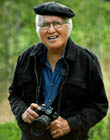|
|
This topic comprises 2 pages: 1 2
|
|
Author
|
Topic: Natasha Richardson dies after skiing accident
|
|
|
|
|
|
|
|
|
|
|
|
|
|
|
|
|
Jim Bedford
Jedi Master Film Handler

Posts: 597
From: Telluride, CO, USA (733 mi. WNW of Rockwall, TX but it seems much, much longer)
Registered: Jun 99
|
 posted 03-19-2009 11:02 PM
posted 03-19-2009 11:02 PM





So sad. She came from a great acting family and just loved her work.
It was reported that she fell and hit her head and that she was NOT wearing a helmet. . . not a bad fall, but probably enough to mess with her brain. Because skiing doesn't have brake lights, turn signals, seat belts, airbags or rear view mirrors, helmets and release bindings are the few fail-safes a skier has. I don't know if it would have made a difference, but a helmet protects your brain better than anything else while skiing (other than good sense). I've skied an average of 80-85 days a year for 30 years and have worn a helmet every day for the last ten.
Everyone falls while skiing. Wear a helmet.
| IP: Logged
|
|
|
|
Joe Tommassello
Jedi Master Film Handler
Posts: 547
From: Coatesville, PA, USA
Registered: Jan 2008
|
 posted 03-27-2009 09:36 AM
posted 03-27-2009 09:36 AM



Here's another article about how the Canadian socialized healthcare may have played a large part in her death. Apparently if she had been skiing in Aspen she may be fine today. Watch out America!!!!
Canadacare may have killed Natasha
by Cory Franklin
COULD actress Natasha Richardson's tragic death have been prevented if her skiing accident had occurred in America rather than Canada?
Canadian health care de-emphasizes widespread dissemination of technology like CT scanners and quick access to specialists like neurosurgeons. While all the facts of Richardson's medical care haven't been released, enough is known to pose questions with profound implications.
Richardson died of an epidural hematoma -- a bleeding artery between the skull and brain that compresses and ultimately causes fatal brain damage via pressure buildup. With prompt diagnosis by CT scan, and surgery to drain the blood, most patients survive.
Could Richardson have received this care? Where it happened in Canada, no. In many US resorts, yes.
Between noon and 1 p.m., Richardson sustained what appeared to be a trivial head injury while skiing at Mt. Tremblant in Quebec. Within minutes, she was offered medical assistance but declined to be seen by paramedics.
But this delay is common in the early stages of epidural hematoma when patients have few symptoms -- and there is reason to believe her case wasn't beyond hope at that point.
About three hours after the accident, the actress was taken to Centre Hospitalier Laurentien, in Sainte-Agathe-des-Monts, 25 miles from the resort. Hospital spokesman Alain Paquette said she was conscious upon reaching the hospital about 4 p.m.
The initial paramedic assessment, travel time to the hospital and time she spent there was nearly two hours -- the crucial interval in this case. Survival rates for patients with epidural hematomas, conscious on arrival to a hospital, are good.
Richardson's evaluation required an immediate CT scan for diagnosis -- followed by either a complete removal of accumulated blood by a neurosurgeon or a procedure by a trauma surgeon or emergency physician to relieve the pressure and allow her to be transported.
But Sainte-Agathe-des-Monts is a town of 9,000 people. Its hospital doesn't have specialized neurology or trauma services. It hasn't been reported whether the hospital has a CT scanner, but CT scanners are less common in Canada.
Compounding the problem, Quebec has no helicopter services to trauma centers in Montreal. Richardson was transferred by ambulance to Hospital du Sacre-Coeur, a trauma center 50 miles away in Montreal -- a further delay of over an hour.
Because she didn't arrive at a facility capable of treatment (with the diagnosis perhaps still unknown) until six hours after the injury, in all likelihood by that time the pressure buildup was fatal. The Montreal hospital could not have saved her life.
Her initial refusal of medical care accounted for only part of the delay. She was still conscious when seen at a hospital and her death might have been prevented if the hospital either had the resources to diagnose and institute temporizing therapy, or air transport had taken her quickly to Montreal.
What would have happened at a US ski resort? It obviously depends on the location and facts, but according to a colleague who has worked at two major Colorado ski resorts, the same distance from Denver as Mt. Tremblant is from Montreal, things would likely have proceeded differently.
Assuming Richardson initially declined medical care here as well, once she did present to caregivers that she was suffering from a possible head trauma, she would've been immediately transported by air, weather permitting, and arrived in Denver in less than an hour.
If this weren't possible, in both resorts she would've been seen within 15 minutes at a local facility with CT scanning and someone who could perform temporary drainage until transfer to a neurosurgeon was possible.
If she were conscious at 4 p.m., she'd most likely have been diagnosed and treated about that time, receiving care unavailable in the local Canadian hospital. She might've still died or suffered brain damage but her chances of surviving would have been much greater in the United States.
American medicine is often criticized for being too specialty-oriented, with hospitals "duplicating" too many services like CT scanners. This argument has merit, but those criticisms ignore cases where it is better to have resources and not need them than to need resources and not have them.
http://www.nypost.com/seven/03262009/postopinion/opedcolumnists/canadacare_may_have_killed_natasha_161372.htm
[ 03-27-2009, 02:57 PM: Message edited by: Joe Tommassello ]
| IP: Logged
|
|
|
|
|
|
|
|
|
|
|
|
All times are Central (GMT -6:00)
|
This topic comprises 2 pages: 1 2
|
Powered by Infopop Corporation
UBB.classicTM
6.3.1.2
The Film-Tech Forums are designed for various members related to the cinema industry to express their opinions, viewpoints and testimonials on various products, services and events based upon speculation, personal knowledge and factual information through use, therefore all views represented here allow no liability upon the publishers of this web site and the owners of said views assume no liability for any ill will resulting from these postings. The posts made here are for educational as well as entertainment purposes and as such anyone viewing this portion of the website must accept these views as statements of the author of that opinion
and agrees to release the authors from any and all liability.
|

 Home
Home
 Products
Products
 Store
Store
 Forum
Forum
 Warehouse
Warehouse
 Contact Us
Contact Us




 Printer-friendly view of this topic
Printer-friendly view of this topic


















